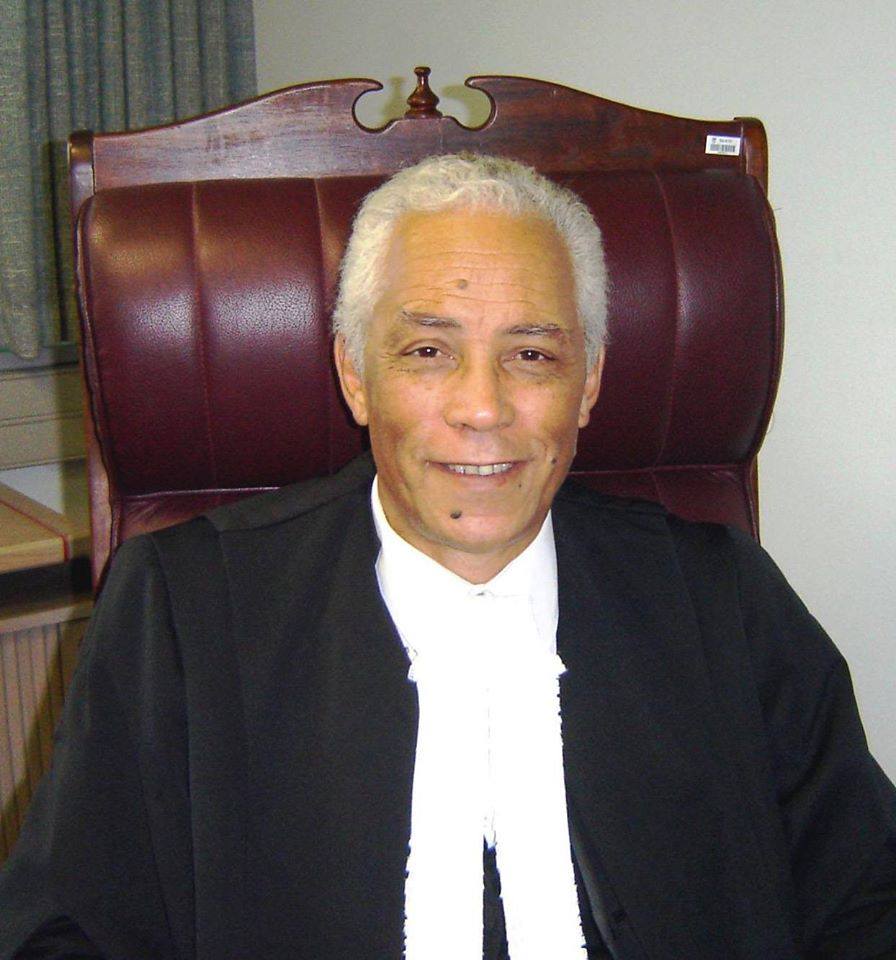- WICKNELL CHIVAYO left school at 15
- DISGRUNTLED Zimbabwe police stage uniform protest.
- MNANGAGWA wife Auxillia drops charges against nine women who boed her in Manicaland
- O.J. Simpson dies of cancer , aged 76.
- South Africa ANC is the cause of ZIMBABWE troubles claims Zimbabwe opposition politician Job Sikhala
CHRIS GREENLAND, A ZIMBABWEAN COLOURED or Goffal who has emerged in society with a credible voice

Zimbabwean coloureds or mixed race individuals are generally frowned upon in our society as good for nothing drunkards, who love fighting, baby making and doing nothing good in society. It is fair to say, the same could be said about other races depending on which corner you do your research. On that score, newzimbabwe vision in this article looks at the story of Chris Greenland, a coloured raised in an orphanage in Zimbabwe but made something of his life and rose to prominence as a High Court Judge in Zimbabwe and Acting High Court Judge South Africa.
His story in his own words, goes,: I was born in Zimbabwe but now live in South Africa on account of the fact that our beautiful country has been reduced to ruins by the madness of the Robert Mugabe regime.
I started life in an orphanage but went on to make history by becoming the first non-white magistrate to be appointed in the southern african region. Later, I served as a High Court Judge in Zimbabwe and as an Acting High Court Judge in South Africa. Seven of my judgments are reported in the South African Law Reports.
My passion is social justice. To this end I was priviledged to be involved in configuring an internationally unmatchable road crash victims compensation system in Namibia and Botswana.
See -http://www.roadcrashvictimsmanagement.com/.
My book is concerned with the story of my life which was unique on a number of counts. For that reason it lays claim to being an intriguing story about an ordinary life made extraordinary by circumstance.
Ethnically I am of English and Ndebele extraction on my mother’s side and Scottish and Shona on my father’s side. This 50% White 50% Black has always intrigued me in quite a number of ways.
I have been happily married to Palmira Rozaria neé Lourenço for over 33 years.
I started collecting heroes very early. My first hero was a 4 and a half year old lad, Noel Feldman, whilst we were still at the orphanage. Later it was, Danny Pillay, a school teacher at secondary school. Then I became impressed with great minds. What I found about all people of substance is that they represented truth in thought word and deed – simple truth.
The person that was most influential on me, in my early life, was a Roman Catholic nun from the Order of the Sisters of Notre Dame – Sister Mare Nugent. She was light years ahead of her time in her understanding of what was important as regards human interaction. Afer all she introduced sex and social skills education at our school in 1959, decades before it was even thought of by the rest of the world.
Later I discoverd that my thinking and personal code had been first triggerred by a sangoma (Black sharman) and my Black grandmother whilst I was still a child.
As a Coloured, growing up in racist Southern Rhodesia, life was always going to be challenging; and I suppose it was. It was also incredibly interesting. It just had to be as a racist system was challenged and then knocked over in an armed struggle.
The big question however is – were we really liberated? Did Black majority rule actually confer the promised freedoms? Are human rights and freedoms trully existent in Zimbabwe and the other countries in the region, particularly South Africa, now the darling of the world on account of Nelson Mandela?
About all this I have decided to tell my story in a book titled: – “The Other -without fear, favour or prejudice -“, available on line from Lulu.com and Amazon.com. Writing the book was like homework; you don’t want to do it, you don’t really like doing it, but you just have to.
Apart from being intriguing the narrative tackles very important issues head-on. There are no sacred cows as there is an insistence that convenient untruths and inconvenient truths be exposed.Whatever else we might disagree on we must agree that all wrong, all injustice starts with perversion of truth.
The issue of justice, including social justice, is central. It can be imagined that the views of someone who spent over 30 years in the courts and has sentenced five people to death are relevant to any conversation about justice.
As a human story it has appeal for its relevance not only to people who are living in this region, during a time of momentous change, but also to humanity in general as the main themes such as racism, ethnicity, xenophobia ..ect … and sub-themes have universal application.
It should be of real interest to historians, social scientists, human rights activists and persons serving in the fields of justice.
It should be of relevance to all those who know in their hearts that, what ever might be postured, promised or said, they are subjected to particular treatment because they are seen as different. Chris Greenland.